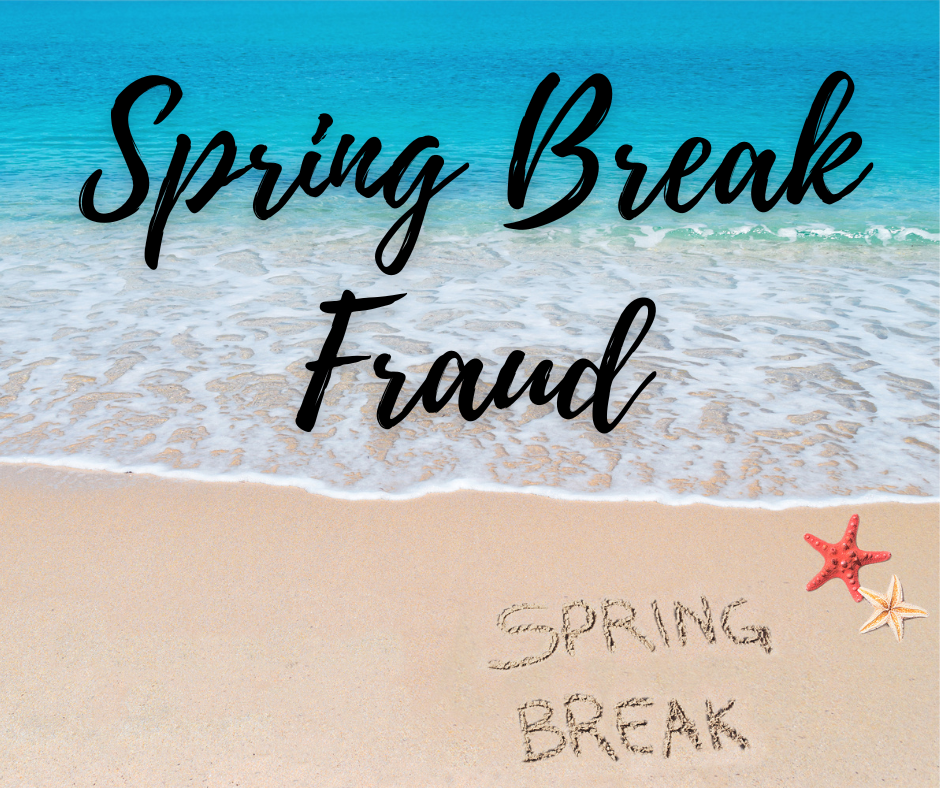Spring Break Fraud

Are you gearing up for your spring break adventure? While you're busy making plans, safeguarding against identity theft or fraud might not be your top priority. However, being in a new environment, especially if you're not fully focused on your surroundings, can make you vulnerable. Here are some tips on how to avoid fraud while traveling for spring break.
How to avoid identity theft and fraud when traveling:
Before you leave, put a hold on your mail delivery or arrange for someone trustworthy to collect it. This step is crucial to prevent potential mail theft, which could lead to unauthorized credit card applications or access to sensitive information. Additionally, it's essential to inform your financial institutions about your travel plans. With the IAACU Cards App, this process is effortless. Our app allows you to put a travel notice on your account. This not only prevents us from mistakenly blocking your transactions in new locations but also prompts us to monitor your accounts more closely for any signs of suspicious activity.
When traveling internationally, using a credit card is among the most secure payment methods, since consumers typically have zero liability for any fraudulent purchases. On the other hand, a debit card doesn’t have as much protection, and if a thief gets hold of it, that person can start draining your account immediately. With the IAACU Cards App, you gain the ability to monitor your spending and block or even freeze your card if you detect something suspicious.
Opting for cash transactions is an additional precaution to protect your identity and accounts, as it eliminates the risk of card numbers being compromised. However, if you must use an ATM for cash withdrawals, exercise extreme caution and avoid machines that appear unbranded or suspicious. Scammers often employ skimming devices to capture account information and record personal identification numbers through fake card readers, making it a prime method scammers use to hack into victims’ finances.
Also, avoid carrying a Social Security card when traveling, and ensure that you securely store your passport, credit cards, and any other confidential documents in a hotel safe when they are not in use. Additionally, exercise caution when using public computers or Wi-Fi networks; unsecured connections pose a risk as hackers can potentially intercept and record your keystrokes, especially when inputting passwords for sensitive accounts such as email, work-related platforms, or financial services.
By taking these steps to guard your information, you can focus on enjoying spring break rather than becoming a victim of cybercriminals.




